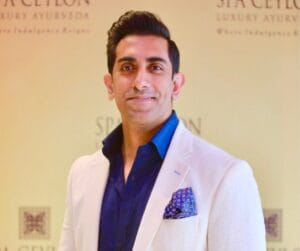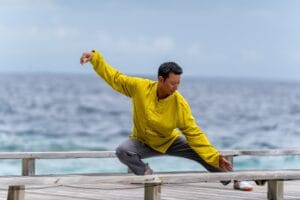Jesper Hougaard is widely recognised in the Maldives as a pioneer of the spa industry. Mostly an addition to a product that was in place since the early seventies, prior to the 1990’s resorts in the Maldives did not have a dedicated spa or wellness area or venue. Early travelers to Maldives were mostly divers, and eventually it became a favorite among honeymooners and now families. The competitive nature of the industry drove properties to add more and more F&B outlets, recreational areas, meditation and yoga pavilions and the like. These days it is expected for any hotel or resort establishment catering to wellness travelers to have their own doctor, nutritionist, yoga instructor and so on as well as a diverse and eclectic range of treatments and nutritious culinary options.And now of course the destination seems to be entering a new phase with integrated resorts and extreme sports being some of the new experiences offered by resorts and hotels on inhabited islands.
Serena Spa at Thudufushi
The Maldives has also undergone “seismic change … .since inhabited islands have been opened to tourism and locals permitted to build their own guesthouses. Travelers no longer have to stay in resorts and remain separate from the local population, something that kept backpackers away for decades. Island hopping by ferry, speedboat and domestic flights has opened up this incredible country to visitors on almost all budgets. A number of islands in Male and Ari Atolls are not big centers for a booming guesthouse industry, with dozens of options on each.”1
The Maldives is also an ancient country, with a recorded history going back thousands of years, a layer of archaeological and cultural history and a highly specialized crafts sector that includes boat budding, mat weaving, choir rope weaving, jewelry making traditions and a number of other artisanal industries spread in different regions of the archipelago. WIth the onset of tourism in the early ‘70s and with rapid expansion in ‘80s and ‘90s, many of these crafts were commercialized and served the burgeoning souvenir trade, now institutionalized in the ‘resort shop’ found in resorts and the ‘guest shops’ found on inhabited islands with tourist facilities. The island lifestyle, so to speak, is still found in the remorter region of the country, where the day’s activities harmonize with the rising and setting of the sun, and communities still rely heavily on the abundant marine resources found in the surroundings for their livelihoods.
Maldives Wellness Review contributing editor Mohamed Mamduh spoke to Jesper to see into the future of wellness travel in the Maldives. Excerpts follow;
MM: Can you tell us a little bit about yourself and the company you currently represent?
JH: Dear Mamduh, I do agree that the definition and understanding of Wellness lacks a bit because it is not just about having a wonderful spa experience with a beautiful massage – wellness is a more complex universe.
I have been associated with the spa and hospitality world for more than 20 years through my company Serena Spa. In 2016 I sold off the company and decided to focus on creating inclusive and holistic wellness experiences and create places and concepts where all the elements of wellness come together. Today my consultancy firm Diletto Lifestyle & Hospitality helps new and existing hotels and resorts incorporate wellness aspects, right from complete concept development to gradual changes to offer more genuine experiences to their guests. To help a resort become more wellness-focused is not always about turning it into a wellness retreat but analyzing many different aspects of a guest experience and making step-by-step improvements. For instance, sleep is a very important wellness element and to improve sleep quality, simple things like soundproofing, light control, mattress, and linen improvements are important factors. And in the F&B area, adding vegan menu and tweaking existing menu choices can bring about an increased wellness score.
I do not focus on one particular methodology or solution to fit all, but address all aspects of wellness and suggest the most suitable solution. For instance, physical activity is not just exercising – I call it movement because a dance can be equally good for the physical wellness aspect as a gym can. Another aspect is the environment, not just the close physical space, but the macro environment as well. Today we can all agree that the planet’s health is threatened so sustainability is very important not just in the operation of a wellness resort but also in the construction, what kind of materials are used, what kind of energy is consumed, how are the staff and local communities treated et cetera. The social aspect of wellness is important – with all of us being glued to our social network, how do we relearn to connect directly with people, our fellow guests, family, friends, hospitality personnel, and the local community. In many of my projects, I design spaces so that people can learn to be with each other; we suggest community tables in all our restaurant designs, we encourage people to work together in yoga classes, in experiential learning sessions et cetera. Spirituality is an important part of it and I’m not talking about religious spirituality but an understanding of all the little things in life that makes us more insightful, more patient and a balanced outlook. This can be achieved in meditation sessions, learnt though simple awareness classes and simply listening to other points of view – that is one of the reasons why travel to other cultures is so important, learning about other ways of living. This also ties into the mental and emotional wellness elements where one can learn to understand oneself better through the understanding of other people.

Serena Spa at Laguna (Maldives)
MW: How did your association with Maldives begin?
JH: I first heard about the Maldives in 1993 through a former employee who was then a pilot flying seaplanes in Maldives. To be honest, I had to take out the encyclopedia and an atlas to find out where Maldives was – very far from Denmark where I was born and lived at that time. I had been in the aviation industry for 20 years at that time and I was asked to come and have a look at this newly started seaplane operation called Maldivian Air Taxi and once there, I got enthused with Maldives and was easily persuaded to take over as General Manager. It was a joy to work in the Maldives, first of all the climate, the people, the food; I thoroughly enjoyed all elements of it and to do business in a small country like Maldives – even smaller than Denmark – was a learning experience. I enjoyed working with the government’s civil servants, the business people and of course with the resorts. 30 years ago everything was still relatively new, the tourism was developing at a rapid pace and it became and still is the number one destination on the bucket list of most people. And no wonder, the nature is amazing and nowhere else in the world can such clean water, clean air and peaceful environment be found. Luckily the policies of the government are very much focused on sustainability to keep the natural environment intact so it can keep attracting people to come to Maldives. At the time there were only a few resorts with spas; I remember Banyan Tree Vabbinfaru had one and also Bandos had a Filipino lady doing massages, (sometimes quite painful). In addition to managing Maldivian Air Taxi I was fortunate to open Kanuhura Resort (presently Six Senses Kanuhura)- one of the first resorts with an elaborate spa facility. It got me pondering if there was an opportunity to expand the concept of operating spas in more resorts, a service which had caught on in neighboring Asian countries, most notably in Thailand. I therefore decided to quit Maldivian Air Taxi, founded Serena Spa and started developing a spa concept, SOPs, products, designs, and training programs, offering to operate spas on resorts at my risk. Serena Spa quickly became very successful and an indispensable part of a Maldivian holiday. After a short while, I expanded into Sri Lanka, Kenya, India, and later set up operations in Thailand, Egypt, and Seychelles. My involvement with many international spa organizations and wellness pioneers over the years made me realize that there was something missing with a spa operating as a separate unit in a resort and that is when I started thinking of a more complete holistic wellness approach where all aspects of a resort operation would include wellness.
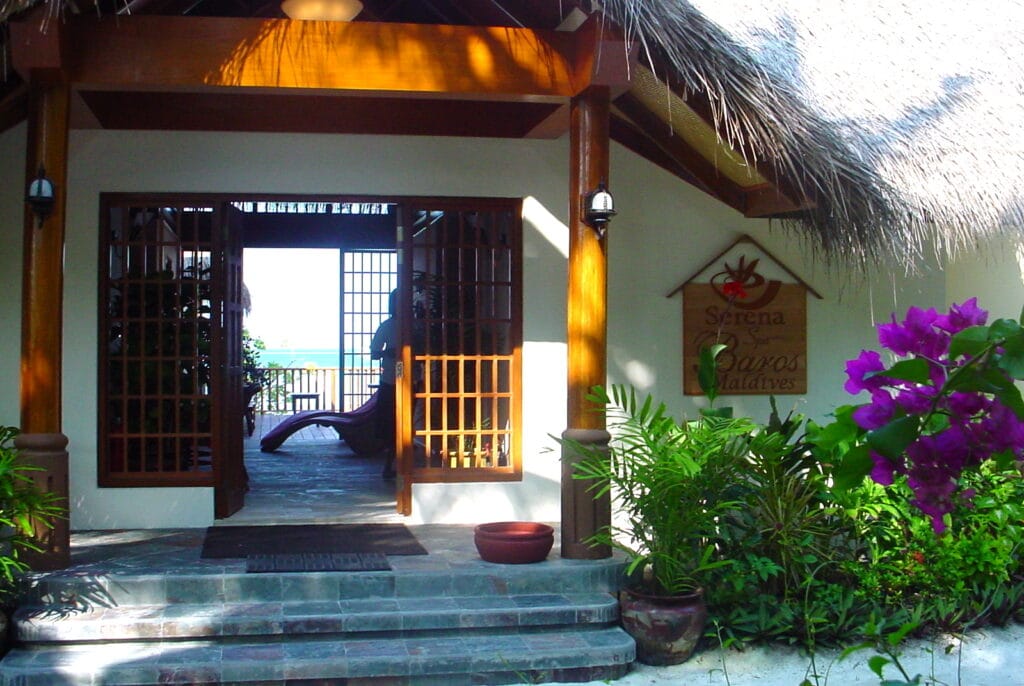
Serena Spa at Baros Maldives
MW: What is your definition of Wellness?
JH: I define Wellness as a lifestyle, more than just something you can achieve during a short stay at a wellness resort. It is about a balance between body and mind consisting of many factors, one is the physical, other environmental, social, mental, spiritual, and emotional facets. Most importantly, wellness is something you have to be involved in, or as the Global Wellness Institute defines wellness:“The active pursuit of activities, choices, and lifestyle that lead to a state of holistic health”.
Wellness is more than just a trend, it has always been there and is part of many original cultures and hence, the hospitality industry needs to evolve to include wellness at the core. The wellness awareness has been amplified by the recent Covid scare and now is the right time to do something about it to ensure long-term success. Guests who are well-educated about wellness will increasingly demand holistic wellness programs, facilities, and other aspects of wellness – not just a spa and a gym. And how does that work in a resort? ‘Wellness’ in its broadest form denotes resort operations purposefully inscribed to make people feel better, through sound nutritional aids, physical activities (body), and through self-actualization programs aimed at revitalizing one’s mental constitution and expanding one’s experiential horizons (mind/spirit). Not everything needs to be addressed in the first step, but it’s crucial that resorts investigate how this trend impacts the attractiveness and ultimately the business. The general wellness awareness is forcing resorts to initiate programs to attract guests – whether it be for the spa, the fitness center, in-room, on the restaurant menu and even in the construction and back-of-house functions. Under this broad umbrella, resorts can and should make incremental improvements that are in line with what the core audiences want from your resort when it comes to wellness.

Serena Spa at Equator Village
4. Do you think Maldives is a Wellness destination?
Maldives is a perfect wellness destination; it has all the right ingredients right from the clean air, the clean waters, pleasant temperature all year round, peaceful culture, and not least the remoteness which means one can uncouple from daily life’s disturbances when in Maldives if one so wishes. Of course, Maldives has all the modern facilities for communication – fast internet and mobile phone connections everywhere, but still it has this feeling of no shoes no news and that is what makes Maldives a unique wellness destination. Another advantage of Maldives is the recent development that has germinated many different types of resorts, classifications, and price brackets which allows wellness to be experienced even in more economical environments. Typically a wellness holiday is longer than just going for a beach or diving holiday, it usually takes 2 to 4 weeks and the cost of staying in very high end hotels could be prohibitive with the addition of the cost of the elements of a wellness program. Today Maldives has many different types of resorts, there is anything from guest houses that can be had for less than $100 a night up to the very epitome of luxury costing thousands of dollars a night and everything in between and a full or partial wellness concept can still be incorporated in any resort tier.
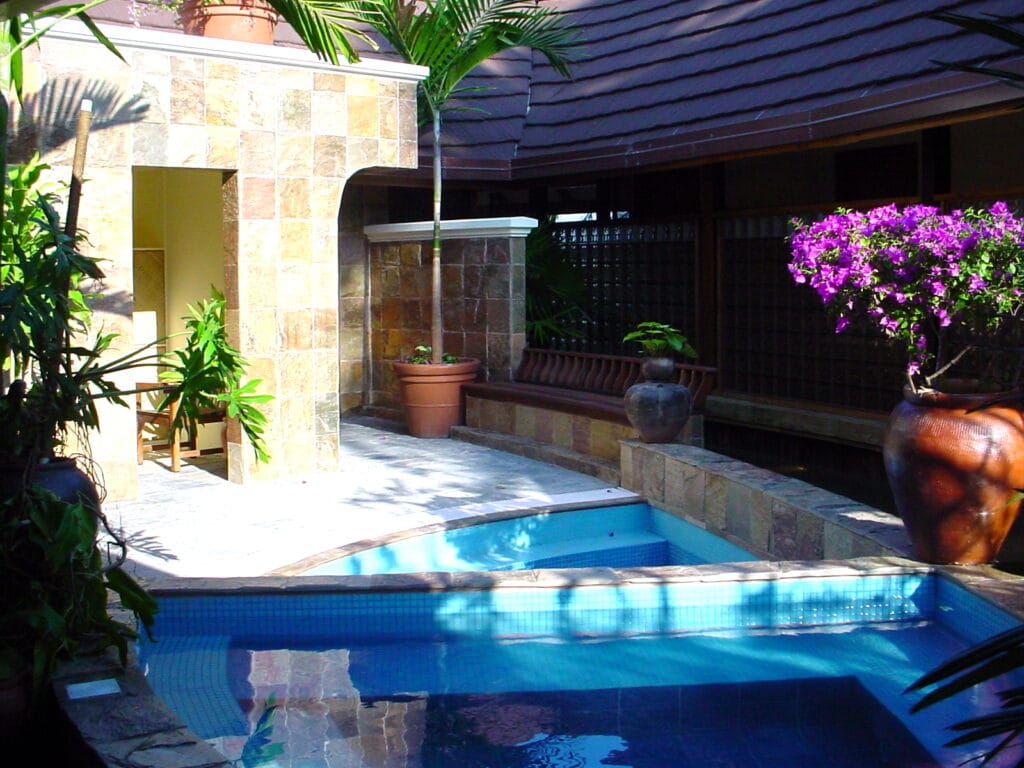
Serena Spa at Kuramathi (Maldives)
5. How do you see the future of the wellness industry and economy?
According to the Global Wellness Institute the wellness tourism sector is growing at a compounded annual rate of more than 8% which goes to show how important wellness resorts are for the future of tourism. Another new trend in travel is “experiential travel” where people want to experience something other than just going to the beach or sitting in a restaurant or sip cocktails by the pool side. Wellness is an experiential learning process, as mentioned earlier, wellness is an active pursuit, not a passive swallow-a-pill-and-everything-will-be-fine concept. Done right, wellness is a very interesting business opportunity for the tourism industry. My own experience as a consultant in the wellness space is that almost any new resort project in Maldives and in Asia for that matter is trying to incorporate wellness in some form, either as a full fledged concept or at least playing some part of the project. Many are still struggling with a full understanding of what wellness means – again Wellness is not about completing everything and ticking all the boxes in the wellness menu, it is a matter of incorporating maybe some of the elements. It’s like your diet, even if you can’t do a 100% healthy diet, as long as you incorporate some of the elements of a healthy diet it is better than none. I believe that for the tourism industry and in particular for Maldives it is imperative to start incorporating a more holistic wellness attitude. It is no longer sufficient to just have a nice spa with nice messages; it needs to be much more ingrained in the overall guest experience.
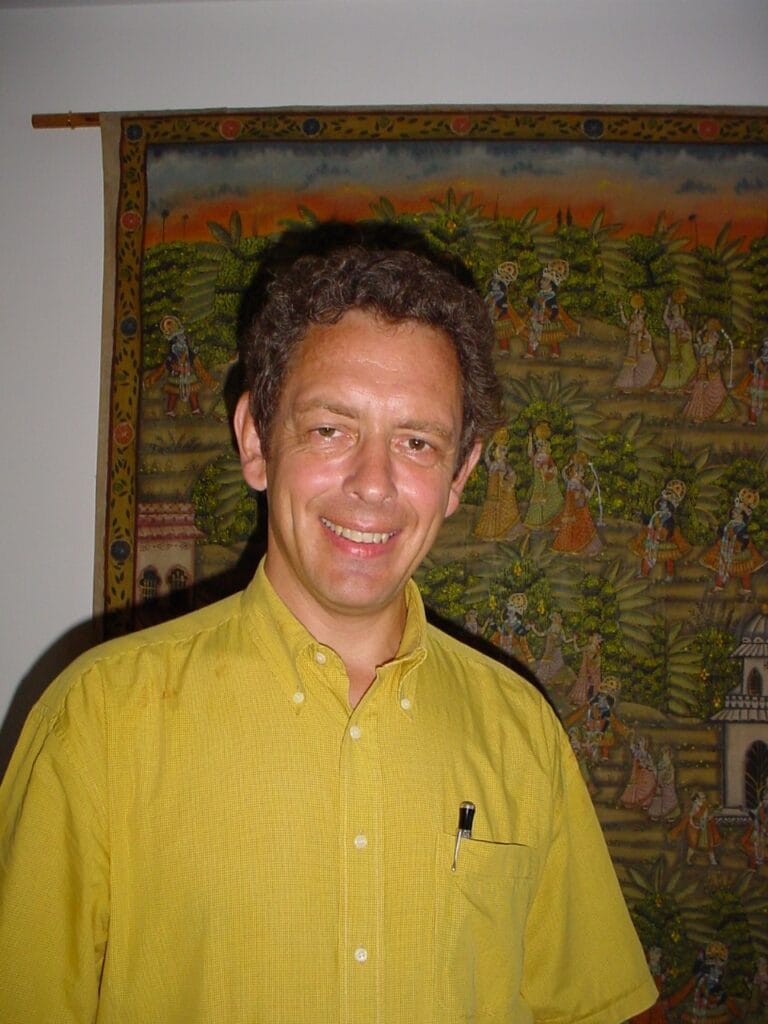
Jesper in Male’, 2003
1 Lonely Planet Maldives, 10th Edition, 2018





